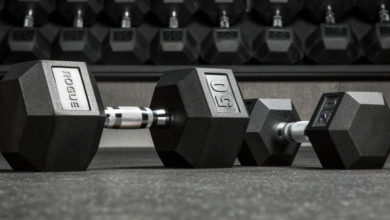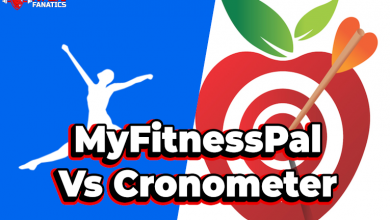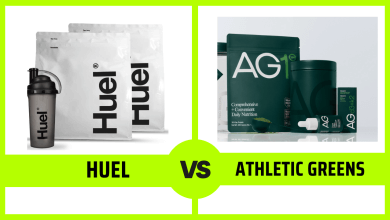Does Creatine Make You Gain Weight? If So, How Much Weight? Is It Fat?
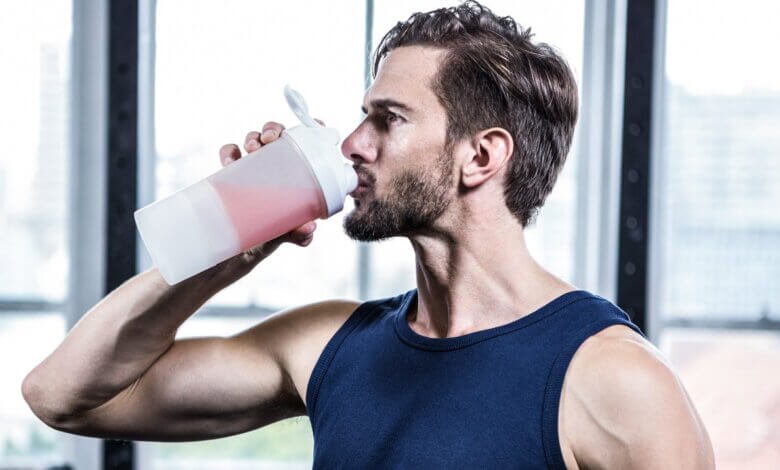
It would be fair to say that there’s no other supplement in the fitness space that has created a buzz like Creatine.
It’s been the go-to supplement for athletes, recreational bodybuilders and gym rats looking for a little extra edge while continuing to stay on the ‘natty’ side of the fence.
It’s also one of the most researched chemicals in the world, that boasts of an excellent safety profile and is backed by tons of clinical studies.
Despite this, there’s a clear lack of clarity when it comes to how it affects your body weight.
There is a large percentage of the population that believes that taking creatine supplements causes unwanted weight gain or makes you look puffy.
Well, that’s partly true.
You will find your weight fluctuating in the first few days of taking creatine supplements, as it increases your intra-muscular water retention.
But that’s not necessarily bad, as the increased water weight gain you achieve will be within muscle cells and tissue.
Not under the skin or subcutaneous. That’s what makes you look puffy.
If you are experiencing subcutaneous water weight gain, then it has to do with your salt intake or excess water intake, either of the two.
Coming to the intracellular water that Creatine makes you retain, the only thing that’s going to look bigger courtesy of that, are your muscles. Perfect for you skinny armed guys and gals.
But the question still remains, does creatine cause weight gain? And if so, how much?
Before we get ahead of ourselves on effects of creatine, let’s dig a little deeper into Creatine.
What is Creatine?
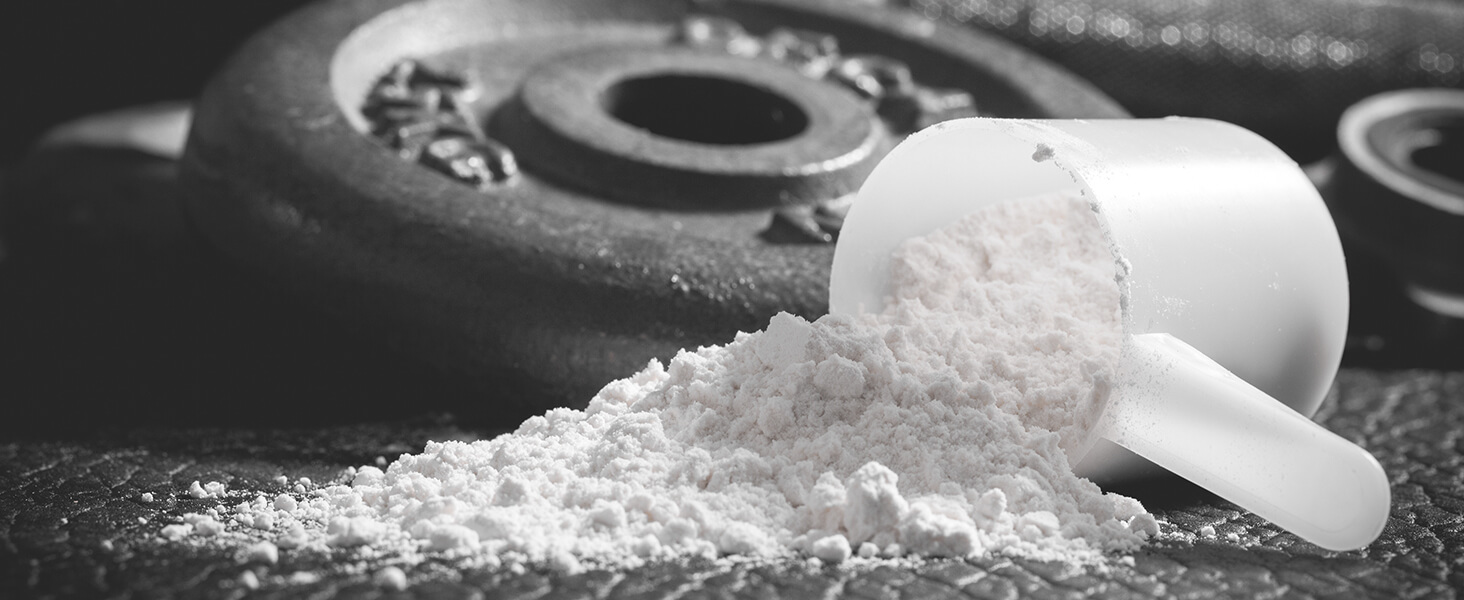
Creatine is a naturally-occurring molecule produced by the pancreas, the liver and the kidneys. 95% of creatine storage is in your muscle though.
Apart from oral creatine supplementation, it is also a naturally occurring compound found in red meat, fish and a bunch of other food stuff.
Chemically, it is similar to amino acids and it is stored in muscle tissue as phosphocreatine or ATP, which is akin to an energy reserve that the body taps into during high intensity workouts.
Every time you contract a muscle, you lose a little ATP. Creatine just refuels it back to retain muscular strength and extra energy to lift more weight as well as increase endurance enough to hit more reps.
Here’s the kicker.
Your muscle tissue has an ability to handle more creatine storage than what your body can produce.
So, when you take creatine supplements, your phosphocreatine levels increase, which gives you more energy to fuel high intensity exercise performance with.
That’s not all. Creatine also works via several other biological pathways that influence muscle mass and strength.
You can lift heavier weights. You can add some extra reps. You can improve athletic performance and training adaptations. Everything sort of magically improves in the gym.
How Does Creatine Make You Gain Weight?

The big question that seems to be looming large over the health halo created by creatine, is “how does it make you gain weight?”
When you use creatine, it is shuttled into your muscle tissue along with water.
This typically occurs in the first week or two that you start using doses of creatine and you can gain up to 3 lbs. in a span of a week, in just water weight gain from taking creatine.
The more lean muscle mass you have, the more the water retention which in turn means the more your weight will increase.
However, the increased intramuscular water will only give you an impression of increased muscle mass as your muscle retain fluid and look bigger.
It does not cause any fat gain or increase your body fat levels in any way.
Unlike some of those meal replacement shakes we take for breakfast, like shakeology or shaklee, or kachava and its alternatives, creatine has zero calories. It does not affect your fat metabolism.
In a nutshell, creatine does not make you gain fat.
That said, some people will look bloated and puffy when they take creatine. Here’s why.
You Need to Be Lean to Get the Most Out of Creatine
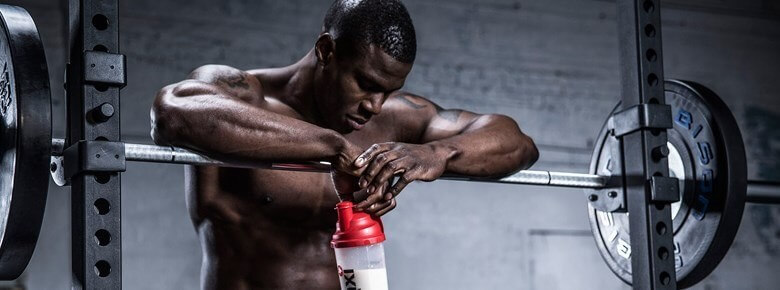
A lot of people complain that taking creatine has made them fatter.
In reality, it doesn’t.
It’s just that the muscle tissue under the existing body fat becomes engorged with extra water and hence, it appears that their fat tissue has expanded.
If you have a high body fat percentage, then you are bound to look round and puffy when the creatine draws water in, thus increasing muscle size.
That’s why it’s very important to lose fat first so you’ll have a reasonably low body fat percentage before you begin taking creatine supplementation if you do not want to appear round and fluffy.
Although, It’s completely optional mind you. If you have higher body fat using creatine is still perfectly fine.
You can get all the benefits of creatine even if you have high body fat levels, except for a ribbed, aesthetic physique. But hey you weren’t expecting a 10 pack set of abs off the use of creatine, were you?
If aesthetics are your goal, then my personal goal would be to try creatine when your body fat levels hover around 12-15%. If you are a woman – slightly higher.
Does Creatine Cause Facial Bloat?

In the early days of Creatine use, it was recommended by supplement companies that you preload creatine so that you saturate your muscles with high creatine levels to get that extra boost.
For one, it sold more bottles quicker.
A lot of athletes and newbie gym goers still follow this slightly outdated dosing protocol, where they use high doses up to 5-times the recommended low dose for 4-5 days.
Well, to be fair, although this is not what I do, there is a study that suggests that Creatine works best when your muscles are saturated with it.
If you were to take the recommended small amounts of 5 grams of creatine per day dose, it would take weeks for your muscles to get saturated with more creatine stored in them, which makes it appear like preloading is a great thing.
But, it is the preloading stage that may cause creatine bloating side effects.
First time users who aren’t used to sudden water retention get paranoid as their muscles start to look bigger and rounder.
If your salt intake isn’t monitored enough to help reduce water retention, your face might look bloated too.
There’s an easy workaround though.
Do not preload Creatine.
It’s not some gospel written in stone. It’s just one of the ways to use the popular supplement.
You can get the same benefits even if you skip preloading completely and take the normal maintenance lower doses. Just that it may take a while longer.
In fact, in that same study, it states that there was a marked improvement in muscle strength output when Creatine was used in maintenance doses only, without loading it. Although not best, there is still noticeable improvement in your weight lifting or overall weight training.
This is my preferred way. I use creatine on my off days and on my training days in a lower dose, as pre-loading is just not something I want to put my body through.
The best part is that the athletes in the study did not notice any increase in their body weight during the first two weeks of using creatine.
Does Creatine Make You Fat?
No, it does not.
In fact, by supplying your muscles with more ATP to help you gain muscle strength during explosive movements.
Taking creatine can help you do more intense cardio sessions, allowing you to burn more fat and build lean muscle mass, especially if you are doing cardio to build muscle and boost athletic performance on all fronts.

Taking creatine also helps build muscle mass and improve your resistance training by allowing you to lift heavier. This should also contribute towards your efforts to burn fat, build strength and gain lean muscle mass eventually.
But, the basic rules of fat loss remain unchanged.
You have to burn more calories than what you consume to achieve fat or weight loss.
So, you’d want to start off by tracking your nutrient intake, calculating your TDEE, maintenance calories and create a workout plan that suits your goals.
Working with a registered dietitian to set up a healthy diet with few to no processed foods and sugars should also help you avoid unnecessary weight gain in the first place.
Which Form of Creatine is Most Effective?
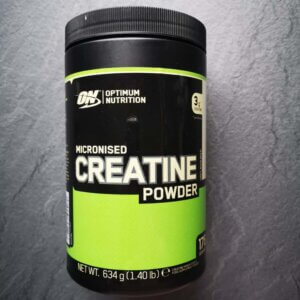
As Creatine’s popularity soared, manufacturers hopped on to the bandwagon with fancy terms peddling different versions of creatine with half-baked claims about better absorption and what not.
There’s Buffered Creatine, Creatine Nitrate and Hydrochloride which are sold under these claims.
These are overpriced money-grabs at best.
Good old Creatine Monohydrate powder works best.
It has near 100% absorption, it’s cheap and it’s readily available.
If you find the unflavored powder a tad unpalatable, you can find micronized creatine that dissolves readily in water or juice. No chunks of undissolved powder in this one.
I personally use un-flavored creatine. I pour my pre-workout (I often prefer preworkout without beta alanine) in my water bottle first, and then the creatine powder and mix it up well. I can’t tell it’s even there.
Although lately I have just been using the capsule version. Way more convenient.
You can check out the stuff that I use on amazon by clicking here.
Is Creatine Safe?
Creatine for women and men is rated GRAS by the FDA which means that it’s ‘Generally Recommended As Safe’ for consumption.
Also, there are numerous clinical studies that have analyzed creatine for safety and efficacy in athletes of all ages.
Most studies have confirmed that creatine has an excellent safety profile when consumed in reasonable doses.
It should be noted that creatine may cause some minor abdominal cramping in some people. In very rare cases, it has been linked to kidney function problems.
What are the Benefits of Creatine?

Apart from loading your muscle tissues with more ATP or energy, Taking creatine also has a plethora of other health benefits.
- May help long term muscle growth: While Creatine doesn’t exactly help in the growth of muscle tissue, it does help increase the total volume or total work that you do in a training session by helping to improve stamina and endurance. Combined with the right nutrition, this is one of the key factors that stimulates muscle growth for lean mass.
- Improves cellular repair: Creatine helps your body recover sooner from workouts by improving satellite cell signaling, which aids recovery.
- It stimulates the release of IGF–1: Creatine supplementation has been linked with an increase in the levels of Insulin-like Growth Factor-1, which is a key anabolic hormone.
- It reduces Myostatin levels: Myostatin is a protein that limits your ability to produce muscle. Without a cap on the amount of myostatin, your body could build muscle tissue endlessly. Creatine reduces Myostatin levels slightly, which helps improve your potential for new muscle tissue.
- Prevents muscle breakdown: Maintaining muscle when you are in a calorie deficit is extremely challenging. Taking creatine prevents muscle breakdown which might be very beneficial if you use it during a cut. Also, the muscle hydration makes your muscles look pumped, which is a neat added benefit.
Creatine Does Make You Gain Weight Via Increased Water Retention
Here’s the takeaway from this blog post.
- Creatine does increase body weight by drawing more water into your muscles. It makes your muscles look bigger and improves performance during high intensity workout sessions.
- Don’t get hung up over the nominal movement on the scale as the positives far outweigh the water retention.
- Creatine does not make you fat.
Preloading creatine is not required and It may help you avoid the bloat.
Related Reading;
- Protein Powders with Low Sodium
- Caffeine Anhydrous Vs Regular Caffeine
- Protein Pills – What You Should Know
- How Much Weight Loss Causes loose Skin?
- Why is protein powder So Expensive?
- Best Protein Powder and Meal Replacements Without Whey – Top Tasting Picks
Sources
- https://jissn.biomedcentral.com/articles/10.1186/s12970-017-0173-z
- https://www.ncbi.nlm.nih.gov/pmc/articles/PMC155510/
- https://www.livestrong.com/article/543854-the-average-weight-gain-with-creatine/
- https://pubmed.ncbi.nlm.nih.gov/10731009/
Ben Mayz
Hi there! I'm Ben, main author and chief editor at Fitlifefanatics.com. I have been obsessed with Strength Training and Fitness for 18 years now.
My passion for living a happy fit lifestyle is what made me realize that fitness is what I wanted for my future.
I went on to earn my Masters in Sports Training & Biomechanics.
My passion for Strength training & fitness and my love of helping others is what made me start Fitlifefanatics.
Here, myself, and a team of specialist aim to provide the most accurate, and actionable information possible in hopes to help foster the fitness community forward.
You can learn more about Fitlifefanatics on our About Page

